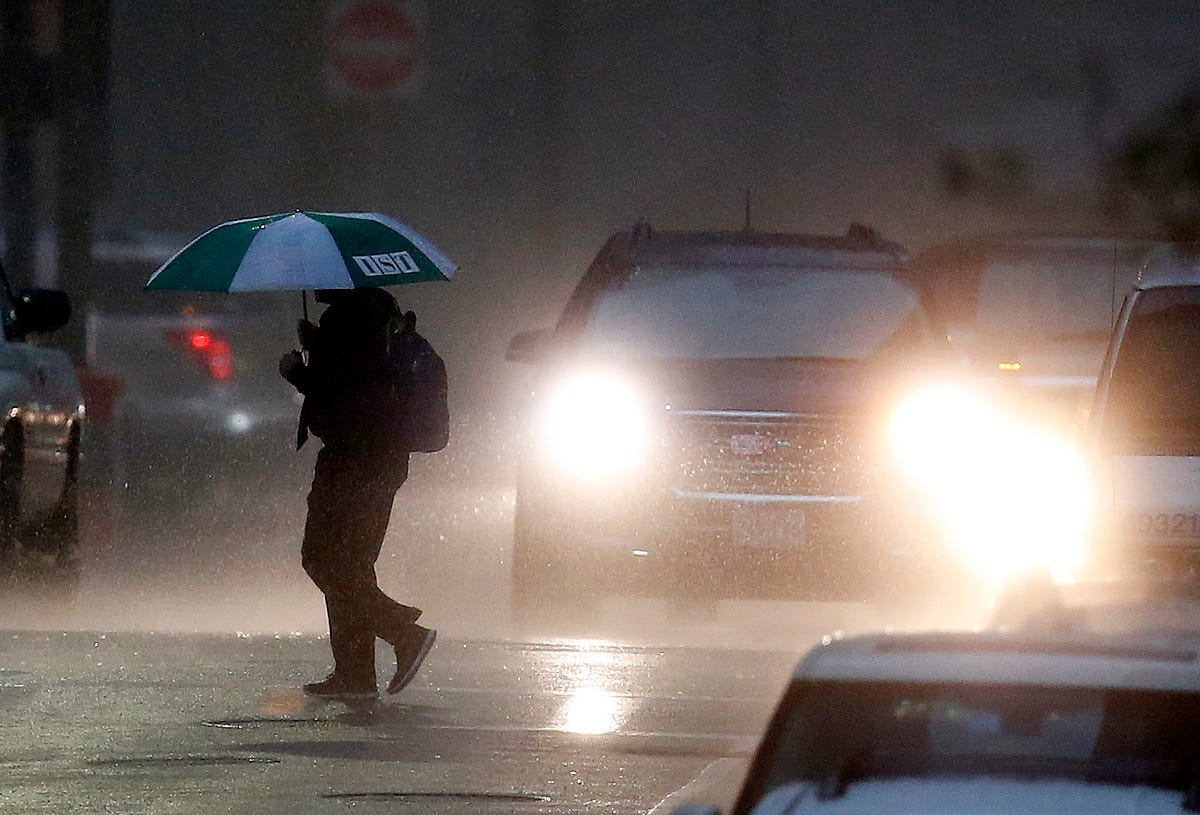
A pedestrian crosses Congress Street during a severe thunderstorm in Boston. CREDIT: AP PHOTO/MICHAEL DWYER
Massachusetts is getting serious about meeting its climate goals...
Gov. Charlie Baker (R) signed an executive order last week directing state agencies to take steps to ensure the state reaches its 2020 emissions reductions goals, study the state’s vulnerability, and plan proactively for climate mitigation.
Baker called the order “an important step to protect public health and safety, local infrastructure, small businesses, and our state’s abundant natural resources” from climate change.
“Combatting and preparing for the impacts of climate change will require a holistic approach across state and local government and collaboration with stakeholders from all corners of the Commonwealth,” he said in a statement.
Earlier this year, a court found the state failed to put in place regulations that would enable it to achieve its goal of reducing greenhouse gas emissions by 20 percent from 1990 levels by 2020. In 2050, emissions are to be reduced by 80 percent. The state legislature passed the Global Warming Solutions Act in 2008.
“The purpose of [the law] is to attain actual, measurable, and permanent emission reductions in the Commonwealth, and… to ensure that legally mandated reductions are realized by the 2020 deadline,” Justice Robert J. Cordy wrote at the time. The court ordered the state to address these regulations.
Massachusetts is already a member of the Regional Greenhouse Gas Initiative (RGGI), a cap-and-trade program that requires polluters to buy carbon credits at auction. Under the program, the nine participating Northeastern states have reduced emissions from the electricity sector by 15 percent since 2011 — while seeing a $460 million decrease in electricity bills. And the state is a leader in solar energy development, which has been supported by a strong renewable portfolio standard and net metering policies. Massachusetts currently has the second-most solar jobs in the country, after California.
Massachusetts — along with the rest of the world — is already feeling the effects of climate change. According to a recent study, by 2050, the state could have fewer than 20 cold winter days each year. Under a high-emissions scenario, a quarter of Boston could be locked in to sea level rise by 2045.

Samantha Page Climate Reporter at @ThinkProgress.
source: https://thinkprogress.org/
original story HERE
Get more of The Global Warming Blog. Bookmark this page and sign up for the blog’s free RSS Feed. Sign up for free Global Warming Blog by clicking here. You will automatically be emailed a regular summary of the latest global warming headlines.
To help do something about the climate change and global warming emergency, click here.
Sign up for our free Global Warming Blog by clicking here. (In your email, you will receive critical news, research, and the warning signs for the next global warming disaster.)
To share this blog post: Go to the Share button to the left below.

Be the first to comment
Sign in with